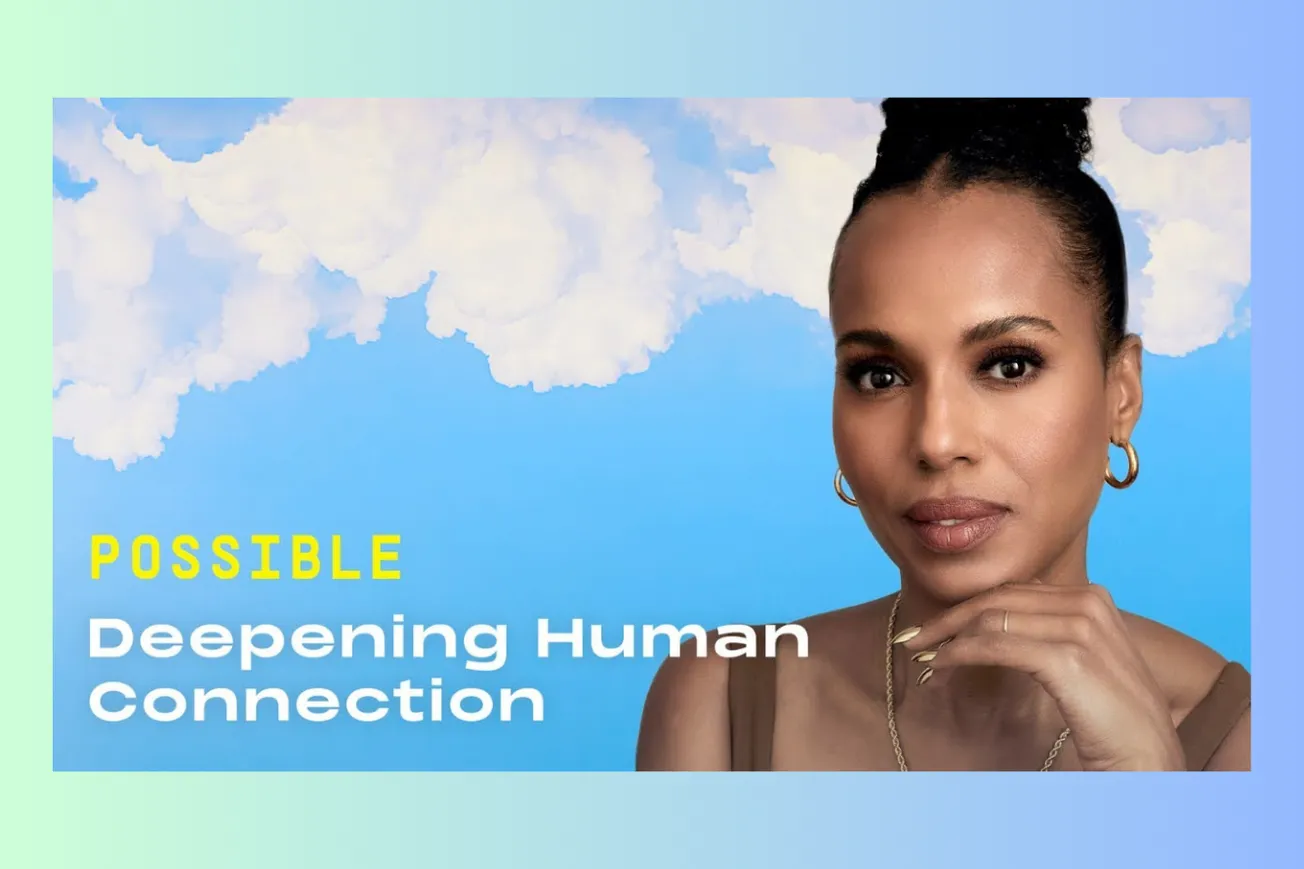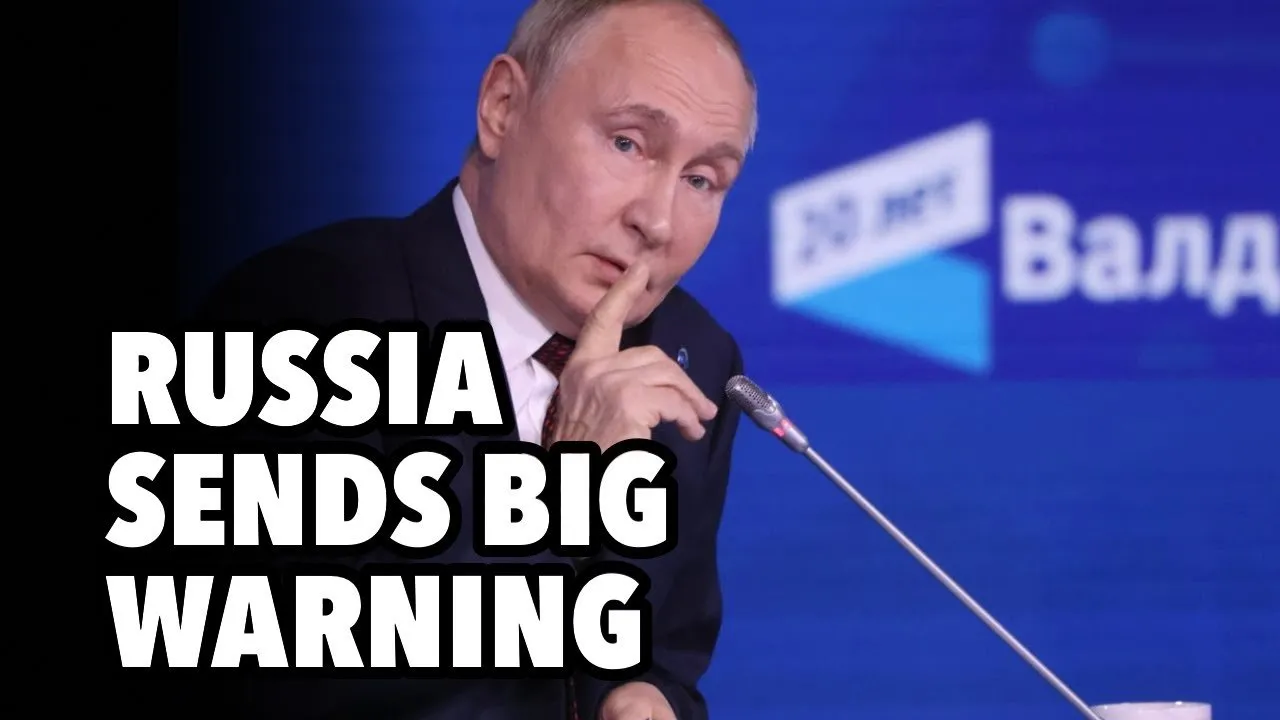Table of Contents
From learning Malayalam in the streets of Kerala to pioneering social media engagement on Scandal, Kerry Washington has never shied away from stepping into the unknown. In a recent wide-ranging conversation, the actress and producer opened up about her transformative memoir "Thicker Than Water," the evolution of technology in entertainment, and why she's actually excited about AI's potential to democratize storytelling.
Key Takeaways
- Washington discovered her beloved father wasn't her biological parent through a DNA test, leading to profound insights about chosen family versus biological connections
- The original phrase "blood is thicker than water" actually meant the opposite of what most people think - it originally emphasized chosen bonds over biological ones
- Scandal became appointment television partly because the cast pioneered live-tweeting, creating real-time community engagement that made DVR viewing feel like missing a party
- Washington sees AI as potentially democratizing access to experiences, allowing creators to reach people who couldn't otherwise afford or access their work in person
- She advocates for consent, compensation, and transparency as the three pillars of ethical AI use in entertainment
- The actress believes technology should amplify human creativity rather than replace it, citing her experience with ghostwriters as an analogy for healthy AI collaboration
The Unexpected Journey of Self-Discovery
Sometimes the most profound revelations come from the most unexpected places. For Washington, that place was a DNA testing lab, triggered by her participation in PBS's "Finding Your Roots." What started as an exciting exploration of family history through public records and immigration documents took a dramatic turn when genetics entered the picture.
"Technology became the limit to where we could keep our secrets," Washington reflects, describing how her father began having panic attacks once DNA testing was introduced to their genealogy research. The results revealed that her beloved dad, who raised her, wasn't her biological father - a secret her parents had carefully guarded for decades.
But here's where Washington's response reveals something beautiful about human nature. Instead of anger or betrayal, her first instinct was compassion. "Dad, you're going to have a chance to know what it feels like to be loved unconditionally," she told him. The moment crystallized a deeper understanding about the nature of family bonds that would eventually reshape her entire memoir.
The revelation led to a fascinating linguistic discovery through her friendship with Trevor Noah. The phrase "blood is thicker than water" - which most people interpret as biological family being more important than other relationships - actually means the opposite in its original biblical context. "The blood of the covenant is thicker than the water of the womb," Noah explained, meaning the promises and relationships we choose matter more than the families we're born into.
This reframe became central to Washington's memoir, which evolved from a planned book called "10 Things I Learned from Olivia Pope" into the deeply personal "Thicker Than Water." The discovery didn't diminish her relationship with her father - it deepened it, proving that love transcends biology.
Breaking Barriers Through Technology and Community
Long before social media became a standard marketing tool for entertainment, Washington and the Scandal cast were pioneering a new form of audience engagement. When the show premiered in 2012, network executives considered it a calculated risk - the first network drama in 40 years to feature a Black woman as the lead.
"Nobody thought that it was commercially viable to have a woman of color as the number one on a network drama," Washington recalls. "They thought, 'Who's going to tune in and buy soap to a show starring a woman of color?'" The skepticism was rooted in outdated assumptions about audience demographics and purchasing power.
But Washington had learned something valuable from her work with the Obama campaign in 2008. She'd witnessed firsthand how social media could move audiences and build grassroots engagement. When she approached showrunner Shonda Rhimes with the idea of having the entire cast join Twitter, live-tweeting wasn't even a concept yet.
The strategy transformed television viewing. Audiences began calling themselves "Gladiators" after the very first episode, creating an organic community around the show. The real-time engagement made Scandal appointment television in an era when DVRs were killing that concept. Miss the Thursday night broadcast, and you'd face spoilers all over social media by Friday morning.
"Oprah Winfrey came to interview me and said she only started watching Scandal because it's all anybody was talking about on Twitter on Thursdays," Washington remembers. The approach worked so well that their directors struggled to finish scenes during airtime because the entire cast would be buried in their phones, responding to viewers in real-time.
The engagement also led to unexpected business opportunities. When Washington noticed fans responding enthusiastically to Olivia Pope's fashion choices, she worked with the costume designer to create a capsule collection. "We were able to build out a whole fashion line because we were in direct communication with our audiences," she explains. No marketing department or research team suggested it - the demand was visible through direct audience feedback.
AI as a Creative Partner, Not a Replacement
Washington's approach to AI mirrors her philosophy about technology in general - it should amplify human capabilities rather than replace them. She's been experimenting with a personal AI avatar that can instantly translate her presentations into multiple languages, connecting her with global audiences she couldn't reach otherwise.
But she's clear about the boundaries. The avatar uses her likeness and voice, but speaks words she's written and explicitly approved. "I need to have some consent, some compensation, I'd like to have creative input and approval," she emphasizes, outlining the three pillars she believes should govern AI use in entertainment.
The consent aspect goes deeper than simple permission. Washington points out that her performance as Olivia Pope on Scandal would be fundamentally different from her work in Django Unchained or Little Fires Everywhere. Simply pulling from "the Kerry Washington universe" wouldn't capture the specific choices each character requires. "Being able to have input to say it's not just like I can take anything from the Kerry Washington universe and plug it into this character" is essential for authentic storytelling.
Her excitement about AI centers on its democratizing potential. "Not everybody could afford to fly somewhere or buy tickets to see me in person," she notes. "Are there ways to utilize AI to create experiences for people where they feel like they're having the next closest thing to a personal touch that is generated by me, inspired by me, approved by me, licensed by me?"
This vision aligns with her broader interest in technology that breaks down barriers based on ZIP codes and socioeconomic status. Growing up in the Bronx and now living in Beverly Hills, she's acutely aware of how geography can limit access to opportunities and experiences.
The Ghost Writer Analogy and Creative Authenticity
Washington's experience with ghostwriters while developing her memoir offers a perfect analogy for healthy AI collaboration. When she first tried working with a professional writer, she was furious with the results. "I would never say that, I wouldn't say it like that, I don't use words like that," she recalls thinking after reading the first draft.
The revelation was crucial: "If I want this memoir to really be me, then I have to write it." But that didn't mean working entirely alone. The ghostwriter could serve as an accountability coach, offer prompts, and help with brainstorming - but Washington had to ensure every adjective and comma reflected her authentic voice.
"I think there's a version of thinking about AI in that way," she explains. "It's not about giving over our authorship, but it is about saying it's okay to have some help. I still have to be the final arbiter of what this is or isn't."
This approach suggests a future where AI serves as a creative partner rather than a creative replacement. Writers, actors, and other artists maintain control over their work while leveraging technology to enhance their capabilities and reach new audiences.
The Transparency Imperative
One of Washington's strongest concerns about AI involves transparency - or the lack thereof. Drawing from her memoir's exploration of family secrets and their psychological impact, she emphasizes the importance of clearly identifying AI-generated content.
"One of the things that contributed to my struggles with mental health was that I was being gaslighted as a child," she shares, describing how hidden family realities made her feel unstable. "I think that it's important as we advance in AI to not gaslight people, to not show them AI and say this is me."
This concern extends beyond entertainment into broader social implications. Washington references a study about a generation struggling with emotional intelligence because their mothers used Botox and fillers, preventing them from expressing emotions facially to their children. "I want to make sure we're not doing that with AI," she says, "that we're not losing touch with what truth is."
The solution involves coupling consent with transparency. When she uses AI, Washington wants audiences to know: "I've consented to this, it's authenticated, it's approved by me and co-designed by me. It's not me, but it's as close as you're going to get because it has my blessing."
Redefining Learning in an AI World
The conversation touches on a fundamental shift in how we might approach education and career development. Washington believes we're moving away from the false security of choosing one profession for life toward becoming adaptive problem solvers.
"There was a false sense of security when we were growing up that if you chose to be a doctor, you were set for life," she observes. Instead, she advocates for cultivating infinite learners - people who remain curious about emerging challenges and technologies.
For her own children, this means exposure to both arts and technology. Her eight-year-old visits museums and participates in dance programs while also experimenting with AI-powered educational tools. "As long as we're teaching our young people how to think and how to be curious about the next thing," she explains, "because it's going to move so fast that whatever they know at 22 is going to be obsolete by 27."
This philosophy extends to her own relationship with learning. Reflecting on her time in Kerala learning Malayalam and kathakali theater, she describes the visceral joy of intellectual discovery that adults too rarely experience. "I don't think we do it enough as adults - give ourselves the opportunity to step into the unknown and really gain new wisdom."
The Future of Equity and Justice
Washington's vision for technology's potential culminates in a powerful metaphor about equity versus equality. Drawing from her daughter's elementary school lesson, she describes three children of different heights trying to see over a fence into an apple orchard.
Equality gives each child the same one-foot box to stand on. The tallest child can now easily climb the fence, the middle child can barely see the orchard, and the shortest remains stuck in a ditch. Equity provides each child what they specifically need - perhaps a box for one, a trampoline for another, and a shared ladder for all.
But justice? "Justice is like, let's just level the ground and rip the fence down. Apples for everybody."
This framework applies directly to how technology could reshape access to opportunities. Rather than simply providing the same tools to everyone, AI and other technologies could be designed to meet people where they are, addressing specific barriers and limitations.
"I think that if everything breaks our way, we'll be able to level out the ground and tear more fences down, or at least build more ladders and get people the boxes the size that they need and deserve," Washington concludes. "That future looks like apples for all."
The vision represents more than technological optimism - it's a call for intentional design that centers equity from the beginning rather than retrofitting solutions afterward. In Washington's view, the question isn't just what AI can do, but what it should do to create a more just world.
Technology has already transformed Washington's understanding of family, revolutionized her approach to audience engagement, and opened new possibilities for creative expression. As AI continues evolving, her framework of consent, compensation, and transparency offers a roadmap for maintaining human agency while embracing technological potential. The future she envisions isn't just more efficient or entertaining - it's more equitable, accessible, and authentically human.





